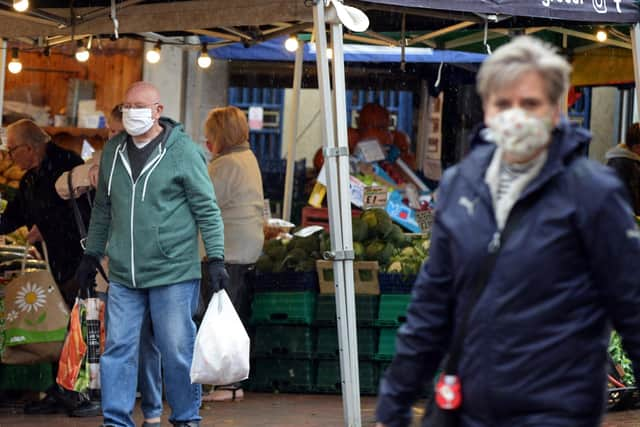2,500 Covid-19 deaths in the North could have been prevented, say academics
The four academics have published a book, Northern Exposure, which states that the region saw a greater number of deaths, more pressure on the NHS, a greater decline in mental health, higher unemployment and an extra six weeks in the strictest lockdown measures.
They said an estimated 2,500 deaths could have been prevented if the Government had delivered its levelling up promises before the pandemic and tackled “pre-existing epidemics of chronic disease and deprivation”.
Advertisement
Hide AdAdvertisement
Hide AdThey also found the UK economy lost more than £7bn in productivity because a greater number of deaths were recorded in the North, and £2bn was lost because of widespread mental health issues.


Health inequalities expert Hannah Davies, who wrote the foreword for the book, said: “The North’s relatively poor physical and mental health meant it suffered under the pandemic for longer and it hit harder. Nowhere has it been illustrated more clearly that health is wealth – and that is a lesson we must take into the future.
“Unless action is taken to rectify this, there is likely to be a long-term health legacy from the Covid-19 crisis – with health inequalities increasing into the future.”
The researchers’ analysis suggests that hospitals in the North were under greater pressure during the pandemic, as they recorded a higher bed occupancy rate and far fewer patients received treatment for non-Covid conditions.
Advertisement
Hide AdAdvertisement
Hide AdThey found the mortality rate during the first 13 months of the pandemic was 17 per cent higher in the North – an additional 29.4 more deaths per 100,000 people – and rates of long Covid are 30 per cent higher.


According to the book, the unemployment rate in the North was 19 per cent higher than in the rest of England, and wages in the region fell – from £543.09 to £541.03 per week – while they increased in the rest of the country, from £600.80 to £604.
The researchers also found that after the Government introduced four tiers of local lockdown restrictions, Northerners spent an average of 54.6 per cent of their time in the two most restrictive tiers, compared with 46.3 per cent in the rest of the country.
In the book, the academics say a “radical, extensive and long-term” strategy is needed to “build a stronger, healthier, more equal country and a North that is more resilient to the future threats to health and wealth”.
Advertisement
Hide AdAdvertisement
Hide AdThey also urge the Government to draw on “historical examples” set by countries such as Germany, which rapidly narrowed the life expectancy gap between people living in the East and West following reunification by raising living standards and increasing investment in healthcare.
Northern Exposure, published today, was written by Professor of Public Health at Newcastle University Clare Bambra, inset, Dr Natalie Bennett, Dr Luke Munford and Sam Khavandi. They have all been working with Northern Health Science Alliance over the course of the pandemic.
Prof Bambra said: “Emerging from the Covid-19 pandemic and entering further challenging times, our book highlights the urgent need for policies that support the building of a stronger, healthier and more equal country – for everyone.”
Earlier this year Health Secretary Steve Barclay said the Government was committed to tackling health disparities and was preparing a strategy to improve treatment of six major conditions, including cancer, cardiovascular diseases, dementia and mental health conditions.